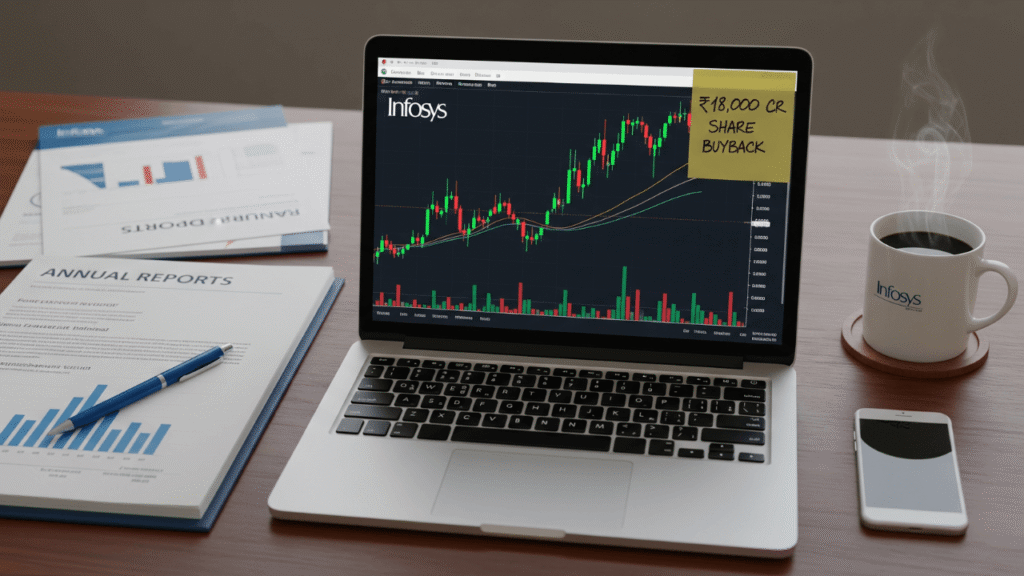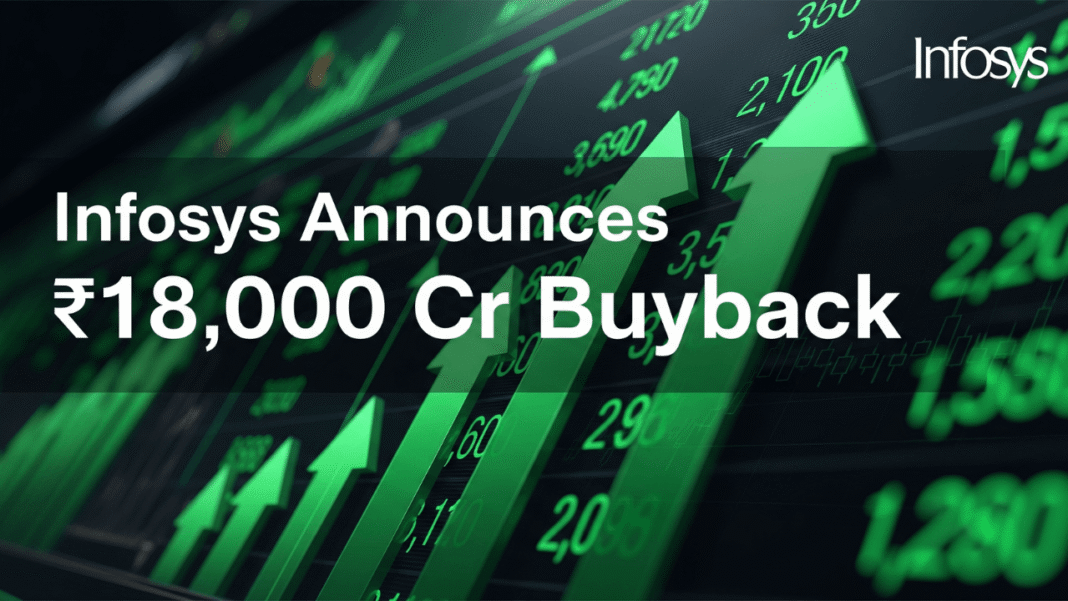In a major move that has sent ripples through the Indian equity markets, IT behemoth Infosys has announced its largest-ever share buyback program, worth a staggering ₹18,000 crore. The decision, approved by the company’s Board of Directors in a meeting on Thursday, September 11, marks a significant step in the company’s capital allocation strategy and has immediately buoyed investor sentiment.
This announcement for Infosys buyback 2025 is the fifth such initiative by the Bengaluru-based giant and is seen as a robust measure to return surplus cash to its shareholders amidst a challenging period for the stock.
The Nitty-Gritty: Buyback Details
The Infosys share buyback will be executed through the tender offer route. The company proposes to repurchase 10 crore fully paid-up equity shares, which constitutes approximately 2.41% of its total paid-up equity capital. The buyback price has been fixed at ₹1,800 per share.
This price represents a substantial premium of nearly 19% over Thursday’s closing Infosys share price of ₹1,509.50 on the BSE, making it an attractive exit opportunity for eligible shareholders.
The company confirmed that the buyback size is well within the statutory limit of 25% of the total paid-up capital and free reserves, as per the latest audited financial statements dated June 30, 2025.
A History of Returning Value
This Infosys buyback continues the company’s established tradition of rewarding its investors through share repurchases. A look at the Infosys buyback history reveals a consistent pattern:
- 2017: ₹13,000 crore (Tender Offer)
- 2019: ₹8,260 crore (Open Market)
- 2021: ₹9,200 crore (Open Market)
- 2022: ₹9,300 crore at ₹1,850/share (Open Market)
The 2025 buyback not only surpasses all previous records in value but also marks a return to the tender offer method, ensuring a more direct and equitable opportunity for all shareholders to participate.
Market Cheers the Announcement
The news was met with immediate optimism on the trading floors. On Friday, the Infosys share price rallied over 2% in early trade, touching an intraday high of ₹1,544.65 on the BSE. This positive momentum is a welcome relief for a stock that has been under significant pressure.
Year-to-date (YTD), the Infosys share had declined by about 19%, heavily underperforming the benchmark Sensex. The announcement of the buyback is viewed as a strong signal of the management’s confidence in the company’s underlying fundamentals and its commitment to enhancing shareholder value, especially during a period where the IT sector has faced headwinds.
What Does This Mean for Investors?

For shareholders, the fixed buyback price of ₹1,800 per share offers a clear and lucrative benchmark. The record date for the buyback, which determines shareholder eligibility, is yet to be announced.
The company has also outlined a process for its US-listed American Depository Shares (ADS) holders. Infosys will seek necessary exemptions from the US SEC to allow ADS holders to participate by converting their shares to equity shares before the record date.
Strategic Imperative and Conclusion
The massive Infosys buyback 2025 underscores the company’s strong, cash-generating ability, evidenced by its healthy free cash flow of $884 million (approx. ₹7,805 crore) in the June 2025 quarter. By opting for this capital return strategy, Infosys aims to optimize its capital structure and improve key metrics like Earnings Per Share (EPS) and Return on Equity (RoE).
For market watchers and investors on platforms like Upstox, this development is a key event to track. It not only provides a short-term boost to the infy share price but also reinforces Infosys’s position as a shareholder-friendly blue-chip company. As the largest buyback in its history, this move is a powerful statement of resilience and a strategic effort to navigate current market volatility while steadfastly rewarding its investor base.
Disclaimer: This article is for informational purposes only and does not constitute investment advice. Readers are advised to consult with a certified financial advisor before making any investment decisions.



